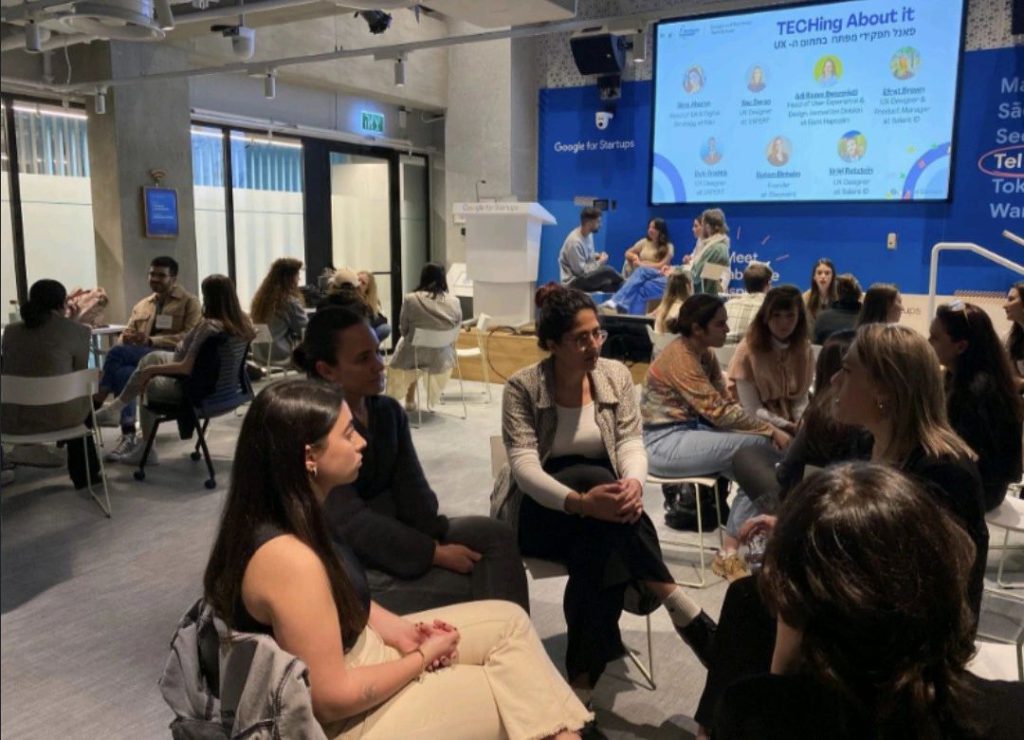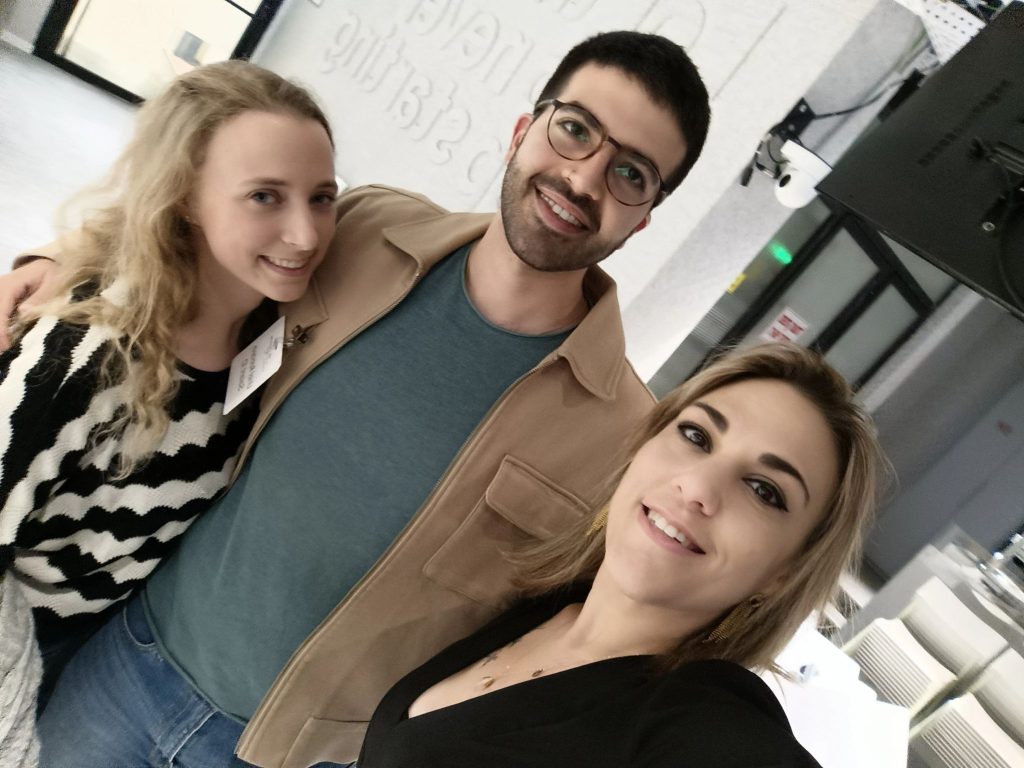Last week, I had the privilege of representing the Salant ID studio at a panel discussion for UX design students sat the Google and Reichman Tech School. At the panel, myself and several other UX designers from a wide range of backgrounds and years of experience shared insights, struggles, and tips for those embarking on a career in UX design. Together we delved into the nuances of this dynamic field, answering questions, and building off one another’s answers to share our knowledge and experiences with the students. We finished the session by meeting with students in small groups and answering any personal questions they had, as well as simply get to know the next generation of UX designers in the field in Israel.
I wanted to take a moment to expand on some key takeaways from our discussion, shedding light on the essential elements that can shape a successful journey to becoming a UX designer.
Substance Over Style: The Importance of a Solid UX Processin Your Portfolio
In the world of UX design, when building a UX portfolio it’s easy to get caught up in the allure of beautifully designed interfaces. However, as several senior UX designers on the panel emphasized, it is the substance behind the design that truly sets candidates apart. Showcasing a solid UX process in your portfolio projects is just as—if not more—important than dazzling visuals. Employers want to see the research, the user personas, the wireframes, and the iterative design process that leads to a seamless user experience. To put it in a metaphor, building a UX design portfolio without a strong UX process is like building a beautiful home on a shaky foundation.
Infusing Personality into Your Portfolio
Standing out in a sea of portfolios can be a daunting task, but as one memorable example highlighted during our discussion, sometimes it’s the personal touch that makes all the difference. A panelist who works as recruiters shared a story of a UX portfolio that mentioned the designer’s love for blueberries. Curious, the reviewer explored further and found a challenge within the portfolio: “Find the 21 hidden blueberries.” This ingenious touch not only showcased the designer’s creativity but also left a lasting impression that led to a job offer. Don’t be afraid to infuse your personality into your portfolio—it might be the key that unlocks opportunities.
The Power of Networking and Mentorship
As someone who personally benefited from the power of networking, I cannot stress enough the importance of making connections in the field of UX design. During the panel, I shared my own journey of landing my first internship through networking, which eventually paved the way to a full-time position. Seek out mentorships, attend conferences, join UX design groups—building a network not only opens doors to opportunities but also fosters a supportive community where knowledge and insights are freely shared.
Embracing Feedback and Continuous Learning
Feedback is not just a one-way street; it is a cornerstone of growth in UX design. One of the panelists, who also works as a recruiter, shared valuable insights into what she looks for in candidates. Beyond the technical skills, she emphasized the importance of how candidates react to criticism. The ability to take feedback constructively and use it to improve is a trait that sets apart exceptional designers. In an interview, candidates should show their ability to handle feedback or criticism and build from it. In the end, in any career, embracing feedback is essential for professional development.
Mastering Tools and Putting Users First
In the ever-evolving landscape of UX design, certain fundamentals remain crucial. Mastery of design tools such as Figma is a must for any junior UX designer looking to excel in the field. Practice with the help of tutorials online, or even try replicating different platforms. Practice makes better, not perfect, and we should constantly strive to learn new things to improve our craft. Additionally, always keep the user at the center of your design process. Utilize tools like persona building, empathy maps, user stories, and use cases to gain deep insights into your target audience. Remember, the goal is to create experiences that resonate with and delight users. This combination of deep insights into the users and an ability to quickly and efficiently wireframe or design screens for them in a scalable manner will help you excel in your career.
In conclusion
The world of UX design is a dynamic and ever-changing landscape, filled with opportunities for growth and creativity. By focusing on building a solid UX process, infusing personality into your work, nurturing connections, embracing feedback, mastering design tools, and keeping users at the forefront, aspiring UX designers can chart a successful path in this exciting field. It takes a lot of hard work, self-learning, and motivation, especially as the field has become inundated with junior designers in recent years. Take every rejection as an opportunity for growth and strive to constantly improve your knowledge and skills while letting your personality shine.
I would like to extend a heartfelt thank you to Udi Salant
from the SalantID studio for connecting me to this event, as well as Dana Raviv and Yael Keynan from Google and Reichman Tech School for their gracious invitation. A special thanks also goes out to my esteemed fellow panelists, whose insights continue to inspire me.
If you’re an aspiring UX designer, remember:
- Your journey is just beginning, and the possibilities are endless.
- Embrace the challenges, seek out new knowledge, and never stop iterating on your craft.
- The world of UX design awaits, ready to be shaped by your innovative ideas and passion for creating exceptional user experiences.









